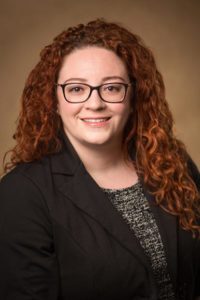Governor Inslee Expected to Sign Additional COVID-19 Related Legislation
 Over the past year, the Washington legislature has passed several bills meant to protect workers from the impacts of COVID-19. During the most recent session, additional legislative bills have been passed by the House and Senate creating additional protections for workers impacted by COVID-19 and future public health concerns. These bills have been sent to Governor Inslee for signature.
Over the past year, the Washington legislature has passed several bills meant to protect workers from the impacts of COVID-19. During the most recent session, additional legislative bills have been passed by the House and Senate creating additional protections for workers impacted by COVID-19 and future public health concerns. These bills have been sent to Governor Inslee for signature.
House Bill 1097
Following a series of high profile cases involving workers who reported safety concerns about COVID-19 related complaints, the Washington legislature unveiled HB 1097. The purpose of the bill was to create stronger anti-retaliation provisions, along with an improved administrative complaint and appeal process for workers who report health and safety violations at work. Under the final bill, the Department of Labor & Industries will have additional methods for addressing reports of unsafe work conditions and the ability to respond to the sharp increase in reports of intentional non-compliance that have occurred during COVID-19.
The new legislation allows the Department to impose a daily civil penalty for stop-work-order violations, creates additional safeguards and protections against employer retaliation or intimidation following reports of unsafe work conditions, and allows workers more time to file discrimination complaints, from 30 days to 90 days. The bill passed the House on a party line vote and passed through the Senate and was delivered to Governor Inslee for signature on April 20, 2021. Once signed, the updated whistle blower protections will take effect beginning on January 1, 2022.
Senate Bill 5254
On April 26, 2021, Governor Inslee signed SB 5254, which creates additional protections for workers against COVID-19 and future public health issues. The bill ensures frontline workers have the right to use personal protective equipment (PPE) on the job, even if an employer does not require it. The bill was written to provide further protections for workers after a Covid-19 outbreaks have occurred in cases where employers have either not reported outbreaks to the Department or the Department had not yet responded to a reported outbreak and where PPE is not required by employers. The goal of this bill is to reduce the number of outbreaks in meat-packing plants, agriculture facilities, grocery stores and other places with at risk front line workers.
Senate Bills 5190 & 5115
SB 5190 was delivered to Governor Inslee for signature on April 26, 2021 and is expected to be signed in the coming days. This bill creates a presumption of occupational disease for any frontline worker during a declared public health emergency. This will apply to COVID-19 and also to future public health emergencies. The new presumption can be rebutted by clear and convincing evidence that a worker was exposed to the disease outside of employment or was working from home just before getting sick. The final version of the bill, as amended by the house, removes attorney-feel language and a private right of action to enforce attorney’s fee awards. Once signed, the bill will take effect immediately.
SB 5115 was also delivered to Governor Inslee for signature on April 26, 2021. As a result of this legislation, there will be a prima facie presumption that any infections or contagious disease transmitted through respiratory droplets, aerosols or contact with contaminated surfaces and are the subject of a public health emergency will be considered an occupational disease. This legislation will apply to COVID-19 but also has the potential to apply to number of other diseases as well.
The presumption applies to frontline workers and as written, it includes virtually all workers who have significant interactions with the public, including but not limited to, first responders, health care workers, food service workers, teachers, farm and food processing workers and grocery workers. The presumption in this bill, however, differs in several ways from SB 5115, most significantly, the evidentiary standard to rebut the presumption is a preponderance of the evidence rather than clear and convincing. SB 5115 also requires business to be more transparent about cases and potential exposures during a declared public health emergency. Once signed, the bill will take effect immediately.
While these bills are clearly aimed at addressing certain workplace issues that have arisen because of COVID-19, it is reasonable to assume the provisions will be applied to other infectious diseases and conditions in the future. SB 5190 and SB 5115 also demonstrate the push to expand the use of presumptions from first responders to other frontline workers. SBH knows employment issues related to whistle blower provisions and questions of causation involving were already complicated before COVID-19 and we are here to help you navigate these ongoing challenges. If you have any questions about the new legislation, please contact me at or 503-595-6111.
Posted by Sarah Cohen.

